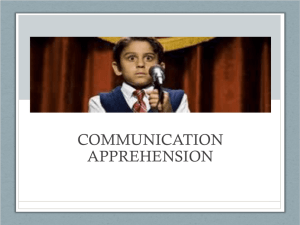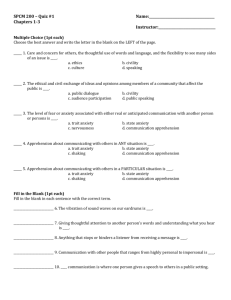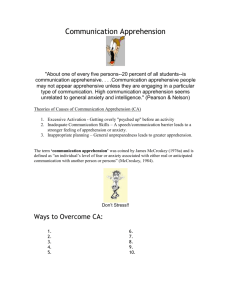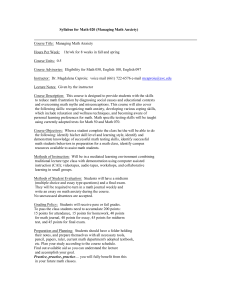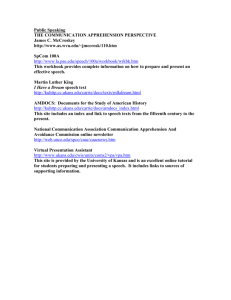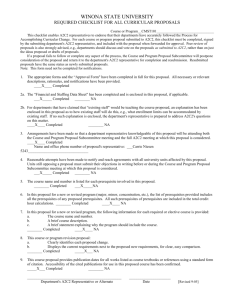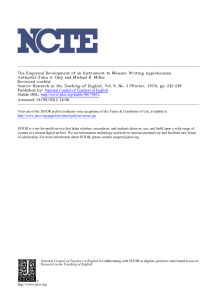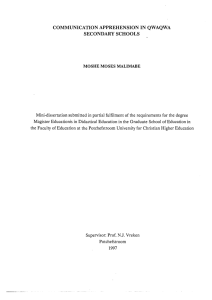Anxiety and Stage Fright Causes of Speech Apprehension
advertisement
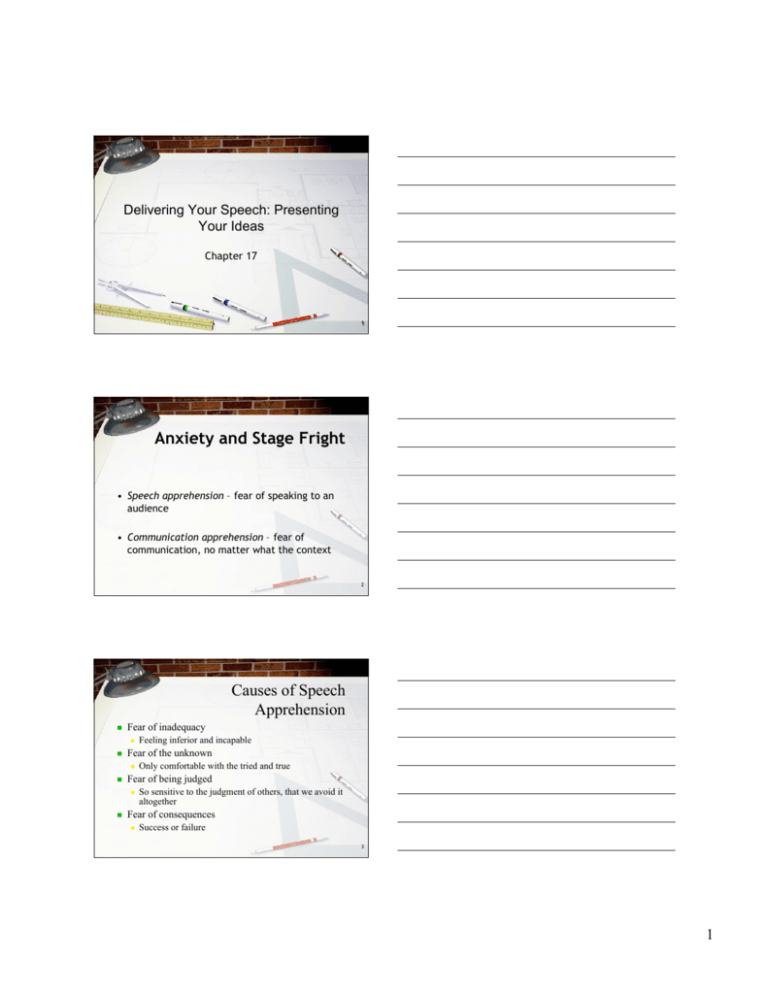
Delivering Your Speech: Presenting Your Ideas Chapter 17 1 Anxiety and Stage Fright • Speech apprehension – fear of speaking to an audience • Communication apprehension – fear of communication, no matter what the context 2 Causes of Speech Apprehension Fear of inadequacy Fear of the unknown Fear of being judged Feeling inferior and incapable Only comfortable with the tried and true So sensitive to the judgment of others, that we avoid it altogether Fear of consequences Success or failure 3 1 Controlling Anxiety Symptoms of anxiety Recognize the actual bodily sensations and thoughts Learn how to control these reactions Deep-muscle relaxation – “tense and relax” Thought stopping – eliminate thoughts associate with anxiety Visualization – help speakers imagine their own success Other techniques Humor early in the presentation Find a friendly face in the audience Charts, graphs, and visuals Speak in front of an imaginary audience 4 Options for Delivery Manuscript Read aloud word for word Reduces eye contact and conversational tone Memorized Completely committed to memory Canned tone Impromptu Spontaneous, without preparation Extemporaneous Researched, outline, and delivered after careful rehearsal 5 Visual Considerations Clothing Consider the topic, audience, and occasion Posture Prepare yourself to stand properly in public Gestures Eliminate annoying gestures and incorporate appropriate ones Movements and facial expressions Movements communicate whether or not you are in control Eye contact Look at each member of the audience 6 2 Vocal Considerations Volume – maintain an appropriate volume Pitch – try not to fall into monotone trap Rate – speed up or slow down as needed Nonfluencies – try to eliminate nonfluencies 7 Rehearsal Procedures Rehearsal can help you acquire confidence Read through the outline several times Learn first and last sentences Preliminary auditory rehearsal Imaginary audience Present entire speech Time yourself Conduct additional rehearsals Alone Friends and/or relatives 8 Giving the Speech Final Tips Arrive with time to spare, and prepare equipment to hold notes and presentation aids Test all electronic equipment ahead of time Give ample consideration to clothing and appearance Walk confidently to podium, letting audience know you are prepared Work to transmit a sense of enthusiasm and commitment wile speaking Complete your speech before returning to your seat 9 3 After the Speech Evaluating your effectiveness in delivering the following: Content Organization Language Delivery 10 Technology Internet sites devoted to public speaking http://www.mwc.edu/~bchirico/psanxinf.html http://speeches.com/index.shtml How to overcome PSA (public speaking anxiety) Speechwriting resources for help in preparation and writing http://www.ukans.edu/cwis/units/coms2/vpa/vap.htm Online tutorial to help improve speech-making skills 11 4
